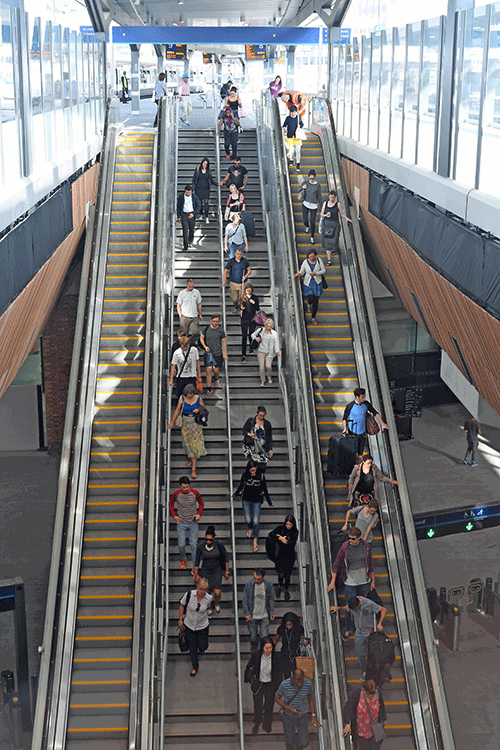 Read the peer reviews for this article
Read the peer reviews for this article
No European country has embraced rail franchising as Britain has. For over two decades, it has been the method of choosing who runs what and (to some extent) how. The current person in charge of the process at the Department for Transport is Peter Wilkinson, Managing Director Passenger Services. He doesn’t like the term ‘franchisee’ - he prefers Service Delivery Partners, to emphasise the need for a partnership approach to delivering a railway fit for purpose.
Whether the process of choosing those partners is itself fit for purpose is a question that has been repeatedly asked since it began. So has the question as to whether franchising is the best way to provide train services.
A SHORT HISTORY
The central belief behind privatisation was that market competition would improve services and transfer some financial risk from the public to the private sector. The flipside to this was that franchises have been almost invariably awarded to the bidder wanting the lowest subsidy or offering the highest premium.
The first franchise was let in 1995, and within just two years the Office of Passenger Rail Franchising had let 25 franchises. This was achievable because they stipulated minimum train service levels and little else, at a time when growth in passenger numbers was not anticipated.
Franchises’ susceptibility to the performance of the wider economy became apparent as the economic downturn in 2001 compounded industry woes, in the wake of the Hatfield derailment and the collapse of Railtrack. Responsibility was transferred from the Franchising Director to the Strategic Rail Authority (SRA, created in shadow form in 1999 and formally from February 2001), which had to agree revisions to franchise support or premia to stave off insolvencies.
The ‘cap and collar’ mechanism applicable after year four became the means to address the exogenous risk and allow the Government to share in success, although additional revenue support has been more common than windfalls. Incentive payments were intended to reward long-term investment and performance. Post-2003 franchises were criticised for increasingly prescriptive specifications - although this was a response to criticism of early franchisees’ performance, it was seen as limiting their commercial freedom.
With the abolition of the SRA in 2006, franchising powers for England were transferred to the Secretary of State for Transport/DfT, and Transport Scotland was created with powers to determine the country’s franchise. It is planned that the Welsh Government will receive similar powers, possibly as early as 2017.
A 2011 DfT review of franchising in England and Wales ended ‘cap and collar’, and proposed a less prescriptive approach while addressing qualitative issues such as overcrowding.
The failure of the West Coast competition in October 2012 was a turning point. The Invitation to Tender (ITT) reflected reforms to franchising policy announced in January 2011 - its two main changes were an increase in the West Coast franchise duration to 13 years and 4 months, and the application of a model named GDP Resilience to measure and compensate for fluctuations in GDP (it had 500 economic scenarios and played its part in the collapse of the competition).
Another element in the failure were flaws and lack of transparency in the ‘sizing process’ to calculate the subordinated loan facility (SLF) required from a potential franchisee’s owning group - the purpose of the SLF was to minimise the risk of financial failure and premature termination of the franchise.
The December 2012 Laidlaw Report into the West Coast competition laid the blame for the technical and administrative failings on insufficient time, inadequate resources and organisational shortcomings. Nonetheless, the wider Brown Review of the rail franchising programme a month later decided that there was “no credible case for major structural change”, despite “the complexity of rail franchising” allowing “the possibility for endless tinkering”.
Brown found “a sharp asymmetry between the experience and capability of bidders and that of the Department’s franchising teams”. Among his recommendations were:
- Franchise terms of 7-10 years with three- to five-year extensions subject to criteria being met, to achieve the right balance between limiting the inherent risk of longer projections and a reasonable payback period.
- Refined residual value mechanisms to encourage investment.
- A reduction in the exogenous risks franchisees are expected to bear.
- Simple profit-sharing mechanism.
- Transparent capital requirements that provide reasonable protection for Government.
- Scoring to reflect passenger benefits.
- A greater role for regional authorities in ITT specifications.
- More flexible change mechanisms.
- A partnership approach between DfT and the franchisee, based on a franchise management capability that matches the letting process.
- Franchise competitions should follow a 24-month timetable.
- No more than three to four franchises a year should be awarded.
Brown also expressed concern over various aspects of the process: the optimism of some franchises in their forecasts; tighter franchise specifications; the trend towards fewer, larger franchises; and the scale of capital requirements for them. Moreover, the desire to eliminate entirely any risk of franchisee default came at a cost to the Government, especially when the franchisee has to factor in substantial disruption through modernisation work.
The DfT addressed its structural shortcomings by establishing a Passenger Services team to focus on franchise letting and management, and by creating a Franchising Director who works closely with the ministerial team. A number of ‘Direct Awards’ were made to incumbent operators during the hiatus in the franchising process. And the DfT set up an Integrated Delivery Directorate to manage the interdependencies between franchisees, infrastructure work and allocation of trains.
But have the reforms within the DfT been sufficient? Not according to the House of Commons Public Accounts Committee (PAC), which in February 2016 found there were “still gaps in its ability to… manage the contracts effectively. Furthermore, the Department has not yet developed the partnerships with operators that are required to support innovation, improve efficiency and improve services for passengers.”
POST-DEBACLE FRANCHISES
In only one year since privatisation has passenger growth dipped, and the 129.8% increase has encouraged more ambitious ITTs and responses to them.
Gales rather than winds of change were evident in the competition for the ScotRail franchise from April 2015, in the way it elevated passenger needs and experience and reduced somewhat the focus on subsidy. Transport Scotland’s ITT was seen as ground-breaking in addressing structural shortcomings such as unaligned incentives between TOC and NR, in giving higher scores for qualitative benefits, and in looking for outcomes to stimulate economic activity generally and tourism especially.
Subsequent franchises have all offered far more than the ITTs required. Rail North and Transport for the North both had an input into the ITTs for the TransPennine Express (TPE) and Northern franchises, which both began in April 2016.
Arriva Rail North (owned by Deutsche Bahn) has promised investment of £1 billion with full refurbishment of the existing fleet, 281 new electric and diesel carriages, the removal of Pacers within three years, and 2,000 additional services per week - a 12% increase across the network and 37% in peak-time capacity. Timings on newly branded Northern Connect services on 12 routes will be accelerated.
Staff will be provided at 45 currently unstaffed stations, and 243 stations will receive ticket-buying facilities. Refurbishment of 355 stations will include better information, security and video help points. Northern’s long-standing partnerships with community rail groups are being continued, and the subsidy will be reduced by £140 million over the nine years to 2025.
First TransPennine Express is investing £500m, acquiring 220 new carriages in 44 five-car sets costing £400m as well as refurbishing its Class 185s. A new Liverpool-Preston-Glasgow service will start in December 2018, and the Liverpool-Leeds-Newcastle will be extended to Morpeth and Edinburgh from December 2019. Peak-time capacity will increase by 80%.
TPE’s 19 stations will have £18m spent on improved facilities, while ticketing initiatives include discounted fares for young job-seekers and groups, paperless ticketing and integration with smartcards. The franchise moves from being subsidised to paying a premium of £303m.
But both these franchises will already require modification, given slippage in the electrification schemes on which assumptions were made about their impact on revenue.
The most recent franchise is even more ambitious. In its successful bid for East Anglia, Abellio has committed to replacing the entire fleet - the first time such a commitment has been made by a franchisee.
Starting in October 2016, the nine-year franchise envisages delivery of 1,043 new vehicles between January 2019 and September 2020. Bombardier is to be awarded a £900m contract, financed by Angel Trains, for the supply of 665 Aventra EMU cars from its Derby facility. And Stadler is to enter the British main line passenger rolling stock market for the first time, with a planned order for 378 FLIRT electro-diesel and EMU cars.
Abellio will at least be able to hit the ground running, as it is the present incumbent. And although it is refurbishing some of the fleet before the new arrivals, it will only gain the ‘new trains’ uplift from 2019-20.
At least two weekday trains in each direction will achieve the long-sought ‘Norwich in 90’, presumably following the unspecified infrastructure improvements. Public Performance Measure (PPM) scores are targeted to rise from 89.7% to 92.9% “through a more robust timetable, investment in infrastructure, people and process, and through an alliance with Network Rail”.
And there is the usual station improvement programme (costed at £9.8m), free WiFi on trains and at stations, ticket offers for part-time workers, and automatic ‘delay repay’ for season and advance purchase tickets.
PUTTING PASSENGERS FIRST
“Passenger needs are quite prosaic,” says Transport Focus Chief Executive Anthony Smith. “They want the basics: punctuality is the key driver, then frequency, reliability, getting a seat, better information on delays, value for money.”
The Brown Report thought the National Rail Passenger Survey (NRPS) scores calculated by Transport Focus “should be more closely reflected in franchise commitments and subsequent monitoring of franchise performance”.
The difficulty is that it is much easier to specify inputs than to devise satisfactory ways of measuring and incentivising outputs. Perceptions of train lavatory cleanliness - a constant low score in NPS results - are inevitably subjective. How do you assess how well a train operator copes with a delay? Passenger response may depend on the manner in which train staff make announcements and how well the situation is explained, as well as how accurate the information is or how helpful staff are in providing advice on missed connections.
Brown proposed that: “To ensure franchisees are incentivised to maintain and improve NPS scores, I recommend that attainment of contracted passenger satisfaction levels be a criteria in franchise extension and extending the mechanism included in the Southern franchise to other franchises, which requires the franchisee to invest in agreed ‘passenger dividends’ if it fails to achieve agreed NPS scores.”
Service quality is the key to growth. A driving force behind the ScotRail franchise was Transport Scotland’s Commercial Director, Bill Reeve. He thinks that franchising is problematic - an expensive process with strengths and weaknesses. But he does credit franchising with a “sharpening of pencils”, adding: “If the revenue stream for the bidder is worth having, then the competitive process will force them to think about how to drive up revenue and drive down cost. Given that much of the costs are fixed by track access charges and determined by the Regulator, and rolling stock costs are to a degree determined by the market with little to differentiate between rolling stock bids, much of that focus must be on driving up revenue and improving customer service. That forces people to stop and think about service patterns and attributes.
“The second benefit is that every 5/7/10 years it makes the Government client think about what they want from the railway network. If that process didn’t happen, many rail projects might not be high enough up the priority list to attract investment.
“Franchising draws public attention to new possibilities and levers improvements. Of course it would be better to have a steady rolling programme of train investment and infrastructure enhancements, but would you get them without the franchising process? It acts as a trigger.”
HOW LONG?
Debate over the merits of different franchise lengths has been unending since 1995. At those early privatisation conferences Jim Sherwood, the founder of Orient Express, suggested 50 years… the Treasury thought three. The EU limit is 22½ years (15 years plus a 50% extension under defined criteria), so Brexit will make no difference to the current preferred length of 7-10 years.
The longest franchise has been the 20 years for Chiltern Railways, awarded in February 2002. It was won under Adrian Shooter, who acknowledges: “It is difficult enough to forecast seven years ahead, let alone 20. The bidders will worry that they will lose their shirts, while the Government will be thinking that they may get ripped off with operators making super profits.
“There have, of course, been various attempts to moderate this, by (for example) putting in ‘cap and collar’ schemes limiting the operator’s upside in return for helping out if such external factors as the economy are more adverse than expected. Chiltern has a rather different arrangement which has allowed some negotiation each time a very major investment has been made - one of the Evergreen schemes, for example.
“For all that, I think that the real (but not often stated) reason why franchises have not been longer is that the banks and other financial backers and guarantors of bidders are not interested in improving the railway. They are mistrustful of the Government, with good reason in some cases. Equally, civil servants are mistrustful of these same people. Both are right not to trust the motives of the other, but this has to change.”
There are unlikely to be any further franchises as long as Chiltern’s, yet despite its relatively small size it has proved the value of taking a long view on investment decisions.
The Evergreen projects have been the most ambitious infrastructure projects of any franchise. Shooter says he was fortunate in that “our major shareholder John Laing plc was much more comfortable with infrastructure investment than, for example, bus companies who don’t understand it. It will be interesting to see how the Welsh Government gets on with its plans to get bidders to put forward solutions involving infrastructure. Bidders are teaming up with various contractors.”
COPING WITH CHANGE
As the PAC pointed out in February, the DfT’s greatest challenge is managing the complex interdependencies that arise from simultaneously letting new franchises while juggling the impacts of unprecedented levels of investment in electrification, stations, trains, and re-opened and new lines.
This would be difficult enough if everything went according to a clear plan, but added strain and cost are imposed on the franchising process by infrastructure work timetable slippages by Network Rail.
For example, wires were due to reach Oxford in 2016. The date is now 2020, so the cascade of Class 165/166 Turbos that were due to supplement West Country services is delayed. The impact on revenue projections by losing years of the ‘sparks’ effect and new trains is obvious. Equally the costs attached to converting 21 Class 801 EMUs for Great Western Railway to bi-mode operation instead of electric only is a very costly consequence of delay.
From the rolling stock owning companies’ point of view, franchising can produce suboptimal decisions. The owners have long-term plans as to where their trains are best suited, and they want fleets of sufficient size to build up expertise and to have enough substitutes when a failure occurs. Consolidation of fleets can be compromised by parallel franchise bids. As part of the process, a bidder is assessed on its unconditional lease agreements or prospective new build deals. Having made an offer to a prospective franchisee, a ROSCO has to wait for the outcome of the competition before it is able to offer those trains unconditionally to another bidder for a different franchise. That may influence a prospective franchisee into committing to new trains.
Of course, new trains are likely to be cheaper to run and more attractive to passengers. And ministers love new trains! But it may lead to assets being unemployed and a suboptimal balance between older, refurbished and new trains. It also makes steady order streams for manufacturers hard to devise. ScotRail is cited as an example of good practice in placing steady orders for new trains while recognising that refurbished HSTs will provide a much improved offer on its non-electrified inter-city routes.
All these changes are internal to the industry. The Laidlaw Review of the West Coast franchising failure described fluctuations in national GDP as the “key exogenous variable”, and Brown also saw “exposure of many franchises to macro-economic factors” as a major theme in his review. It is ironic that this attention has been paid to the impact of the wider economy on TOCs at the moment when we have found that passenger figures no longer track national economic fluctuations in the way they once did.
Much more fundamental to the franchising process is the impossibility of knowing what the Government will do to tip the playing field, yet the Government’s part in adjusting exogenous variables has been widely ignored. Although the fortunes of TOCs are no longer so closely tied to the economic cycle, they are significantly influenced by fuel costs for their principal competition - coaches and cars.
It all looked rather different at the start of privatisation. The 1994 Royal Commission into Environmental Pollution proposed that the price of motor fuel be doubled within a decade and that the use of cars in urban areas be halved.
The Fuel Price Escalator was introduced by John Major’s Conservative administration - setting a 3% per annum increase over inflation, increased to 5% later in the year and to 6% in 1997 by the Blair government. The last rise was in March 1999, before Gordon Brown abandoned the idea in the wake of the fuel protests of 2000. Increases were usually deferred, and 2016 was the sixth year of a freeze on fuel duty even though the overall trend of fuel prices has been on a sharp downward trajectory since summer 2012.
It has been a criticism of franchising that mid-term changes are too difficult to implement, so significant improvements often have to wait for the next renewal. An example is the ten Sustainable Development Principles devised by the RSSB, which former Rail Minister Claire Perry said would be prerequisites of future franchise competitions.
Some have been critical of RSSB straying beyond its safety concerns, but Reeve thinks it is “appropriate to have sustainability objectives for procurement. These measures are as like as not self-funding, reduce energy consumption, improve waste management, and reduce operating costs. Environmental credentials are part of the railway’s marketing proposition both to consumers and politicians deciding on the allocation of resources.”
CONCESSIONS VS FRANCHISING
The pioneer of the alternative concession model was Merseyrail Electrics in 2003, with a 25-year award following the DfT’s delegation of franchising authority to Merseytravel the previous year. Its Managing Director Jan Chaudhry ascribes much of its success to having the client on the doorstep, allowing a close working relationship and quick responses. Equally, the long time frame allows Merseyrail to “make a lot of business cases that you can’t with a short one”.
Merseyrail’s concession (jointly managed by Serco and Abellio) works well - it topped the National Rail Passenger Survey in January 2016 with a 93% satisfaction score, 15 points above the national average. Since its 2003 start there have been major improvements to stations, and two refurbishment programmes to its near 40-year-old trains have increased reliability. Passenger numbers have risen from 27 million to 34 million.
There is no sense of the concessionary model being a straitjacket - Merseytravel’s rail ambitions are enthusiastically supported, and the local dimensions of client and operator make community engagement both more important and easier to engender. “It’s in the DNA of the company to be involved in Merseyside rather than just paying lip service as a franchise commitment,” says Chaudhry.
In response to the often-voiced criticism regarding the tailing-off of drive and performance towards the end of a franchise, or of the risk of inertia in a long one, Chaudhry has imposed some catalysts - new trains, smart ticketing and taking over station management from NR.
The creation of the London Overground concession by Ken Livingstone in 2007 helped to transform some Cinderella services such as the West London Line. LOROL, a 50/50 joint-venture company between DB and Hong Kong’s MTR Corporation, is the train operating company responsible for running the London Overground network under a concession agreement with Transport for London. DB’s interest is managed by Arriva, the division responsible for regional passenger transport outside Germany.
LOROL was awarded a seven-year concession in 2007, and in 2015 it was enlarged by the addition of the West Anglia services to Enfield Town, Cheshunt and Chingford. A two-year contract extension means the company will deliver services until later this year. In March 2016 TfL announced its intention to award the next Overground concession, which begins on November 13 2016, to Arriva.
TF’s Smith agrees the concession model works well for dense urban networks: “The way TfL has set up the concession has been very good. Is it transferable to other urban areas? I think London only teaches you about London because it is such a different place. The money behind it is considerable - TfL is quite well funded, and it has population density on its side.
“I have a lot of sympathy with devolved authorities which want to gain control of franchising, fares and information as a pre-requisite of a unified system. Otherwise it’s confusing and suboptimal. You need the benefit of a whole system that is simple and easy to use, partly through contactless cards. That could be transferred.”
Transport Scotland’s Reeve believes that one of the difficulties of awarding franchises is that “it is hard to get right in the context of EU procurement law”, explaining: “You have to anticipate what bids you are going to get and devise evaluation criteria that will cope with a wide range of bid scenarios, while still delivering key objectives. You have to award whoever won strictly on the published criteria, irrespective of any further information or considerations which may arise after publication of the ITT.
“EU procurement law is focused on promoting a single market. In the trade-off between creating a single market and securing efficient value for client, there is a big emphasis on the single market. Without very careful consideration and preparation, it could be hard to turn down a bid you suspect to be over-ambitious or exaggerated in its claims, without creating the risk of a legal challenge.
“But you need tough laws to guard against improper process where public money is being spent. Government clients don’t get to choose who wins - they choose the criteria by which the bidders will be judged. A value of procurement law is probity. If we didn’t have European procurement law, we would need something like it.”
In trying to make an informed judgement between train operating structures, Smith says: “If you try to find a clue to optimum structures from 14 years of passenger data, they don’t give any clue at all. Concessions, long or short franchises - all can be successful. It’s much more to do with the quality of the contract, management, history, geography and the economy rather than structure.
“Virgin has been innovative and does very well in surveys with no rail competition, but so do they with East Coast, where they have. What do you conclude from that? Nothing! Would East Coast be as good if Grand Central and Hull Trains didn’t exist? Don’t know. Assessing the impact of that competition on the East Coast is well nigh impossible. East Coast has adjusted fares which have benefited some passengers and disbenefited others.
“One generalisation is that companies that have a longer stake in the industry tend to be doing better. Chiltern, SWT, c2c and Virgin have consistently good scores. East Coast scores have done well despite all the changes in ownership, because the underlying product hasn’t changed that much.”
BREXIT FEARS
Even before the vote for Brexit there was already concern at the low number of potential bidders, so anything that might reduce that pool still further is a cause for anxiety. Eleven companies currently hold DfT Pre-Qualification Questionnaire Passports (PQQs), although this includes Trenitalia which has never mounted a bid. And roughly three-quarters of franchises are held by foreign entities. Retaining their interest is vital.
There were just two bidders for the South Western franchise. PAC Chairman Meg Hillier said: “This hardly inspires confidence, and highlights the urgent need for the Department to develop new approaches it can draw on when there is a risk that competition will not deliver the result rail users and the wider public deserve.”
A higher number of smaller franchises might attract new entrants and please existing franchises by spreading their financial risk - since large franchises increase it through higher contract values, especially when coupled with significant increases in passenger numbers and revenue. It might also help to even out the peaks and troughs of new train orders, albeit at the expense of volume and lower unit costs.
More entrants might also be tempted by the prospect of good returns. As it is, the margins are often wafer-thin (pace the constant accusations of the rail unions). Only two TOCs with available accounts show margins higher than 3.3%, despite healthy growth rates, and the loss made by East Coast must be ringing familiar alarm bells.
As Philip Haigh said in RAIL: “If Government is to continue to attract decent bids for its franchises, I reckon it needs to crack the money valve a wee bit more in favour of those running its railway.”
The costs of bidding, now anything between £5m and £10m, have become significant, and the Brown review urged a simplification of bidding requirements and documentation. The DfT is trying to both encourage new entrants to the market and maintain interest from existing operating companies, by simplifying the pre-qualification process and reviewing the number and size of franchises in the network.
ON-LINE COMPETITION AND THE CMA REPORT
The idea of competition between passenger train operators has long been viewed as a Holy Grail guaranteed to generate significant improvements for passengers. It was a tenet of 19th-century governments in encouraging route duplication, and an article of faith most recently demonstrated by the Competition and Markets Authority (CMA) report published in March 2016.
Despite the efforts of the Victorians, there has never been realistic choice on more than a handful of corridors, such as London to Birmingham, Manchester, Glasgow, Edinburgh and Exeter/Plymouth. Even before the First World War, the Caledonian and North British railways came to operating agreements to moderate competition on certain routes, because growing bus and tram competition was crippling their balance sheets. Competition is currently ‘for the market’ rather than ‘in the market’.
From the beginning of privatisation, there has been intermittent hankering for more on-rail competition. The CMA report looks at four main options for the West and East Coast routes and the main Great Western routes between London and the South West/South Wales:
- Option 1: retaining the existing market structure, but with significantly increased open access operations.
- Option 2: two franchisees for each franchise.
- Option 3: more overlapping franchises.
- Option 4: licensing multiple operators, subject to conditions (including public service obligations).
The CMA believes such competition would mean “lower fares, new routes and destinations, more innovations and flexible ticketing”. Because the two (soon-to-be three) current open access operators (OAOs) pay only variable - but no fixed - track access charges, nor pay a premium to Government, the CMA advocates levelling the playing field: OAOs would pay more towards infrastructure costs, and through a Public Service Obligation levy help to support socially necessary but unprofitable services.
Smith agrees with many other responses in favouring Option 1. “As a consumer organisation we quite like choice because it tends to drive competitive behaviour, which tends to deliver better outcomes for passengers. But we can see where choice can tip into anti-choice - it becomes so complicated you can’t make an informed choice, or because the service on offer becomes so restricted you can’t buy the whole product. The off-peak return is a very useful ticket - the flexibility it offers and the number of trains that can be used is very powerful.
“There is a fine dividing line in these things. Having competition upstream with competition for franchises gives the Treasury some comfort - there is a degree of cost control in the system which otherwise seems to be notably absent, ranging to on-rail competition.
“But only being able to take a green train or red train would fundamentally alter the way we use the railways. The ‘walk up and go’ railway is a great thing. The flexibility and frequency we have on Britain’s railway is astonishing - you wait for a modern fast train to London for 19 minutes in Birmingham, 19 minutes in Manchester, 59 minutes in Glasgow and 29 minutes in Cardiff. It’s very impressive. On many parts of the network you no longer need a timetable.
“I worry that moving towards an advance purchase railway we would lose some of that attractiveness. That would be a really negative thing. Make it simple: turn up and go, as TfL has done with its ticketing, brilliantly. People pay a premium for simplicity.”
One area where Smith feels there is unquestionable value in open access operations is the provision of new services: “People don’t like changing trains. There is a visceral sense of being connected to the outside world by having direct trains to London. OAOs have sent a frisson through that debate.”
The impact of revenue abstraction by OAOs prompted the ORR’s 2004 report into moderation of competition, which recognised that long-term investment cases rest on a reasonable degree of assurance that their assumptions will not be undermined.
James Lambert, Director, Sector Regulation at the CMA, envisaged a greater role for OAOs on key intercity routes, building on the customer benefits that competition has delivered on the East Coast, such as “an 85/15 split to increase the competitive pressure, but not so much that it is destabilising or setting in train a race to the bottom. The DfT and ORR are looking at our recommendations and the DfT will consult on the PSO levy in the autumn. We may see some smaller franchises with more overlap. We recognise that there are some risks which we need to work through in implementing greater competition and we are working closely with ORR and DfT.”
That risk is evident from looking at East Coast’s financial results. Is it coincidence that the TOC in the greatest financial difficulty is the only one subject to open access competition? Or that the European railway with the highest number of per capita journeys, Swiss Federal Railways, has no on-rail competition and very limited competition from coaches or buses?
Continental OAOs are cited by the CMA in support of its case, and there is no doubt that in Austria, the Czech Republic and Italy competition between OAOs and the national operator has benefited passengers with reduced fares. But the price war has been destructive: Leo Express in the Czech Republic lost CZK 63.6 million on sales of CZK 88.7 million in the first half of 2014, and NTV in Italy has already had to undergo a debt restructuring. Both have had court battles with the national rail operator.
Another downside of additional operators would be exacerbating the difficulty of devising sensible cascades, reducing the size of train orders (ultimately paid for by higher fares) and probably increasing the multiplicity of train types, and thus adding to cost and reducing reliability. There are currently 37 types of EMU in Britain, with eight more on order.
Nor is it considered wise practice to use up every train path available. Many countries are reluctant for track capacity use to exceed 80%-90%, so that there is some resilience in the system to cope with inevitable perturbations.
THE FUTURE
What’s next? The DfT plans/has to start competitions for the InterCity West Coast, West Midlands, South Eastern and East Midlands franchises over a period of eight months, and award all five franchises between February and November 2017. Consultation on West Coast began in May for an April 2018 start.
The PAC is critical of the DfT’s lack of a strategic vision for the rail system, and of the costs that absence might impose at a later date. Although the importance of this cannot be overestimated, it falls short of highlighting the absence of wider transport policy that reflects environmental commitments. A rational policy would also factor in the many external costs of transport, and seek to mitigate them.
The railway has become a much more complicated industry in the wake of privatisation, and franchising is a major contributor. Complexity adds cost. The costs inherent in the replacement of a command structure by contracts between a multiplicity of suppliers have been quantified by the consultancy Just Economics at an annual £290m. What is incalculable is the cost of the seemingly endless reviews and studies made to improve the structure and operation of the franchised railway, nor the costs of reorganisation to implement those findings deemed worthy of action.
Nevertheless, a European Commission study in 2013 concluded that Britain’s railways were the most improved in Europe since the 1990s. They have grown faster than any other country, while also becoming the safest.
The lamentable state of regional and even inter-city services in some parts of France gives the lie to those who champion renationalisation. Given the disaster of Railtrack and the patchy performance of Network Rail in maintaining and enhancing the infrastructure, a large part of the credit for passenger growth in Britain must be due to the TOCs. As the Brown Report observed: “It is highly unlikely that these successes could have been delivered if franchising was fundamentally flawed.”
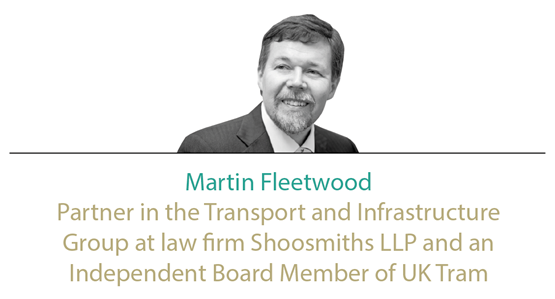
Anthony provides a useful summary of where we have reached in the franchising of rail services. The development has (at times) been painful, but has also been seen as a testing ground by other parts of the world who have subsequently benefited from the UK’s experience. Like Peter Wilkinson, I agree that the terms ‘franchise’ and ‘franchisee’ are confusing. It is really about service providers and how the public sector commissions those services.
Getting the balance right between what the Government wants from a franchise and the length of time an operator has to deliver it is a difficult balance. Even the 20-year Chiltern franchise did not give that company a blank 20-year period to run the franchise. The initial period was much less, with extensions of the term up to 20 years being ‘earned’ from the franchising authority, via new projects to improve the services (including through building new infrastructure) being proposed by the company and accepted by the franchising body.
Franchises or concessions
Whether to have a concession or franchise is primarily about who takes the farebox risk. A franchise can have as detailed a specification as a concession (and arguably in some cases does!).
As Anthony notes, franchising started with the railways in decline, with incentives required for the private sector to try and improve services by taking upside on additional fares they could generate. Current franchises have much less freedom for the franchisee to innovate (particularly around new services), and are now more like concessions. While there are certain passenger flows that are still unpredictable and which have a certain level of risk associated with the income from those services, the renaissance of rail travel has certainly reduced this risk - although seismic shocks such as the banking crisis of 2008 can still cause major problems.
Concessions work well in city regions where there is a reasonable certainty of use and where the local transport authority can provide reasonable predictions of its income. The authority should have a good idea of what its citizens want by way of a rail service, and simply needs an operator to provide that. Good service can be rewarded by a performance regime and a lower cost from the operator, as it is taking less risk in the services. An additional benefit from a local authority controlling the fares is that it can look to establish a common fares policy across its transport area. Common in the majority of European cities, as well as London, it provides a powerful benefit to the travelling public to know that a single ticket or pass will be able to take them where they want to go, irrespective of the organisation providing the actual transport service.
The private sector will generally take the risk, so the question is then how much you wish to pay for that risk and who is the party best placed to manage that risk? On those parts of the network where the service requirements are well known and where most trains are likely to be fairly full, there is an argument to say that these should be the subject of concessions. The funds retained by the local authorities could then be reinvested in improving local transport, including funding other modes such as trams, to bring commuters into centres of cities with reduced numbers of interchanges. Most commuter services could operate as concessions, with only the longer-distance, inter-city routes having the unpredictability in flows that would benefit from franchise operations.
Franchises and open access operations
Competition on a specific route within the rail mode is a relatively recent occurrence. Apart from some joint running, most rail companies ran competing routes. The argument that open access operators (OAOs) will unlock new markets is an exciting one, but there needs to be a reasoned balance between introducing new services if existing services have to be removed to accommodate them. That is not to say that a little-used existing flow should be guaranteed over a potentially new and more popular flow.
Even buses are not completely open access. Routes need to be agreed and the Traffic Commissioners do check to ensure that there is a level of service and reliability for the public. With the introduction of the Bus Services Bill there will be more opportunity for local authorities to establish routes that will be operated under concessions similar to those in London. This will be the ability to provide choice to consumers being constrained by the requirements of the state, or arguably the ability for the state to support routes that would otherwise not be provided in an open market.
The argument about cost of access favouring OAOs can be looked at as a simple money movement exercise. While fixed costs are paid by franchisees but not by OAOs, it would be possible for Government to pay the fixed costs directly to Network Rail rather than include it in the subsidy paid to (or receive a smaller premium from) a franchisee. Having NR on the Government’s books makes this more possible, rather than when Railtrack was a private sector company. Changing the payment route for fixed access charges would then entail all freight and passenger services paying variable charges, arguably making it easier to assess value received from the services that operators wish to run on the railway infrastructure. This would have the potential of making the ORR’s life a little easier, when it assesses whether an open access operation should go ahead or adjudicates over an access dispute between parties trying to gain access to the rail network.
Ticketing and ticket prices are an issue for passengers, especially those who are not regular users. It is incredibly important to be able to have a set of tickets that are available for use on all services and which can be used on a turn-up and go basis. The capacity for looking at getting discounts for specific trains or services is helpful, but a number of users are unable to guarantee which train they will travel on. Having new OAOs with tickets that can only be used on their services can be seen as an issue, but are the benefits of having new services sufficient to outweigh the potential ticketing confusion?
For too long ticketing has sat in the ‘too hard’ category, as any re-casting will see winners and losers. Undertaking a comprehensive review could unlock a number of solutions for operating competing services over the same routes, especially as new technology becomes more common. Rather than paying a penalty fare or buying a completely new ticket for using a different service, maybe a passenger can simply buy an ‘add-on’ related to the current cheapest offer for the service on which they are travelling.
Given that one of the growth areas in public transport is coming from the younger generation who cannot afford to run a private car, we should be looking at embracing the technology we now have available to improve the choices and make it easier to travel. We can even look at integrating it with the rest of their journey!

Anthony’s excellent analysis of the 20 years of franchising makes for a great starting point for anyone seeking to address the Wolmar question: “What are franchises for?”
There has to be a message here, in that franchising has survived everything that has been thrown at it in this time - and there have been some truly enormous shocks. Its biggest success has been the use of competitive bid pressure to drive growth in the volume of rail use, to make the best use of an already busy network. In the process franchising has significantly improved the economics of rail, and improved social and economic cohesion.
But there are areas where it has been less successful. It has tended to institutionalise old-fashioned and inefficient working practices, because these are difficult to change without the Government taking the revenue risk from a strike. The result is that terms and conditions of employment have not changed with the times and are only now being tackled through the mechanism of the GTR franchise, which was (out of necessity) let on a gross cost basis.
While passenger satisfaction has improved enormously over the 20-year period, there are two glaring areas of ongoing weakness.
Firstly, operational performance remains weak, which is largely due to inadequate focus by Network Rail and its regulator on willing the means to improve the basics of infrastructure reliability. There is little point in spending billions on infrastructure upgrades only for it to be repeatedly let down by points failures, track faults, signal failures and the like, on the older infrastructure all around the new. Early efforts by Railtrack to introduce competitive pressure in infrastructure maintenance failed due to inadequate framing of the contracts and their incentives. Since then, sadly, much of the regulatory downward pressure on Network Rail’s cost base has been felt on just this part of the business. A cat and mouse game is played out over five-yearly regulatory cycles, and the end result has been really quite unsatisfactory.
Secondly, fares and ticketing has proved to be too challenging to tackle in a grown-up way through franchising. A single national approach is required, to enable the entire system to be modernised and made much simpler for the general public to understand.
Such an approach needs the franchising authority to play a leading role in determining vision and strategy, which it has singularly failed to do so far. This is probably at the root of many of the problems currently seen in franchising. Because of the absence of any vision, the Government’s approach to franchising largely looks at each franchise in isolation just before it is due for renewal. As such, identifying sensible re-mapping changes often fails to get due consideration.
Also, with so many big franchises, the scope for change in each competition tends to be focused on the most important parts of each franchise. Secondary routes often do not get adequate consideration. Take the Reading-Gatwick Airport route: peripheral to the Great Western franchise, but an important and under-developed route. It needs some infill electrification, integration into the South West franchise, and a much improved service pattern.
Franchising will probably survive the current difficulties in the supplier base, and the over-complexity in the bid process, if only for the fact that the alternative way of delivering rail services remains so unattractive.

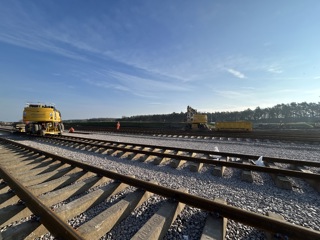
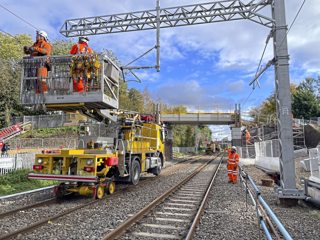
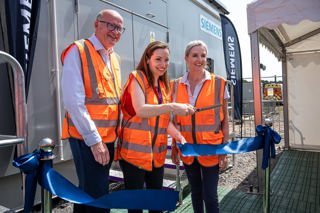
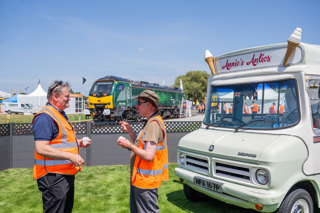
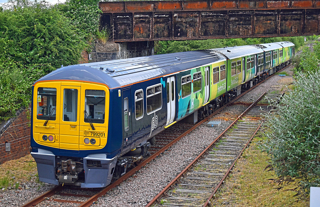











Login to comment
Comments
No comments have been made yet.